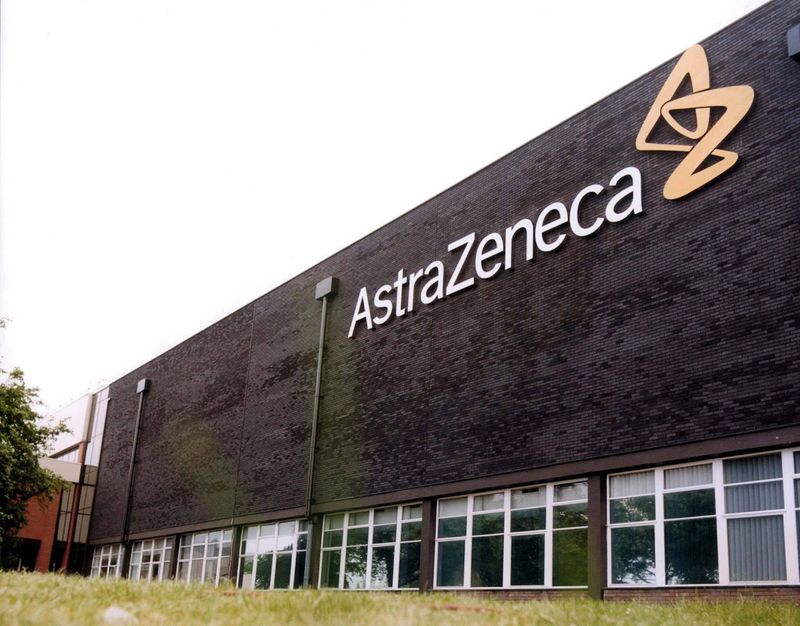Roxadustat Significantly Increased Hemoglobin Levels for Chronic Kidney Disease Patients with Anemia in Phase III OLYMPUS and ROCKIES Trials

7 November 2019 -- AstraZeneca today presented detailed results from the Phase III OLYMPUS and ROCKIES trials showing that roxadustat significantly increased hemoglobin (Hb) levels in both non-dialysis-dependent (NDD) and dialysis-dependent (DD) patients with anemia from chronic kidney disease (CKD), respectively.
The OLYMPUS trial compared roxadustat to placebo while the ROCKIES trial compared roxadustat to epoetin alfa. The results were presented today during two oral sessions at the American Society of Nephrology (ASN) Kidney Week 2019 in Washington, D.C.
Mene Pangalos, Executive Vice President, BioPharmaceuticals R&D, said: “Anemia is a common, serious condition among patients with chronic kidney disease. It occurs when the body has fewer healthy red blood cells than normal and low levels of hemoglobin, which may leave patients fatigued and short of breath. Results from OLYMPUS and ROCKIES reinforce the potential role that roxadustat could play in increasing hemoglobin levels and managing anemia, which is often underdiagnosed and undertreated.”
Steven Fishbane, MD, Zucker School of Medicine at Hofstra/Northwell, Great Neck, New York, US and primary investigator on the OLYMPUS and ROCKIES trials, said: “These data demonstrated that roxadustat effectively increased hemoglobin levels for patients with anemia from chronic kidney disease, including those who show signs of inflammation. Patients who experience chronic inflammation are often more difficult to treat than the overall chronic kidney disease patient population, emphasizing the need for new treatment options.”
In the OLYMPUS trial, roxadustat demonstrated a statistically significant improvement in Hb levels from baseline, with a mean increase of 1.75g/dL averaged over weeks 28 to 52, compared to 0.40g/dL with placebo, the primary efficacy endpoint.
Roxadustat also improved Hb levels from baseline in a subgroup of patients with elevated high-sensitivity C-reactive protein (hsCRP) levels of greater than 5 mg/L, with a statistically significant mean increase of 1.73g/dL, compared to 0.62g/dL with placebo, a secondary endpoint. hsCRP is a protein in the blood that increases when inflammation is present.
Overall safety findings are generally consistent with the NDD-CKD patient population. For all patients, the most frequently reported adverse events in the intent to treat analysis set were end-stage renal disease, pneumonia, urinary tract infection and hypertension. Additional serious adverse events reported were azotemia, sepsis, acute kidney injury and hyperkalemia.
In the ROCKIES trial, roxadustat demonstrated a statistically significant improvement in Hb levels from baseline with a mean increase of 0.77g/dL averaged over weeks 28 to 52, compared to 0.68g/dL with epoetin alfa, the primary efficacy endpoint.
Roxadustat also improved Hb levels from baseline in a subgroup of patients with elevated hsCRP levels of greater than 5 mg/L, demonstrating a statistically significant improvement with a mean increase of 0.80g/dL compared to 0.59g/dL with epoetin alfa, a secondary endpoint. Patients treated with roxadustat used less monthly intravenous (IV) iron (mean = 59 mg) compared to those treated with epoetin alfa (mean = 91mg) from week 36 to the end of the study.
Adverse events with roxadustat were generally similar to those seen in patients treated with epoetin alfa and commonly found in DD-CKD patients. In roxadustat treated patients, the most frequently reported adverse events were diarrhea, hypertension, pneumonia, headache and arteriovenous fistula thrombosis. Additional serious adverse events reported were sepsis and acute myocardial infarction.
Cardiovascular (CV) safety data from these trials will be reported as part of the pooled efficacy and CV safety analyses of DD-CKD and NDD-CKD patients from the global Phase III program, which is being presented in the oral late-breaking abstract session “High-Impact Clinical Trials” at ASN Kidney Week on November 8, 2019.
Data from the Phase III OLYMPUS and ROCKIES trials, together with the efficacy and pooled CV safety data from the global Phase III program, will form part of the regulatory submission in the US, anticipated in Q4 2019. (Article from : www.drugs.com)

